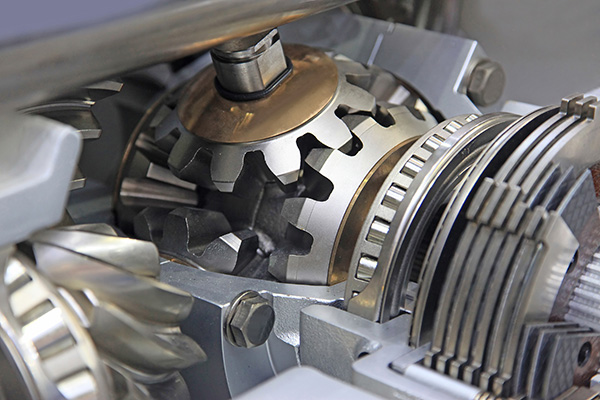
Most drivers don’t think about the differential during routine maintenance, but it’s working every time you hit the road. Whether you’re turning a corner, driving through snow, or cruising the highway, the differential helps your wheels rotate at different speeds so your car handles smoothly.
If it’s never been on your radar, here are five things you should know about keeping your differential in good shape.
1. What the Differential Does
Most vehicles have at least one differential—some have more. Its job is to split the engine’s power and send it to the wheels, allowing them to turn at different speeds when needed. For example, when you take a corner, the outside wheel has to travel a slightly longer distance than the inside wheel. The differential compensates for this difference so your tires don’t drag or skip across the pavement.
If your vehicle is rear-wheel drive, the differential is in the back. If it’s front-wheel drive, it’s integrated with the transaxle. All-wheel drive and 4WD vehicles often have three—one for each axle and a center differential.
2. The Fluid Needs to Be Changed
Differential fluid (also called gear oil) is thick and designed to lubricate the gears and bearings inside the housing. Over time, it breaks down and picks up metal particles as the gears wear. If the fluid isn’t changed on schedule, it loses its ability to protect the parts, which can lead to whining noises, grinding, or even total gear failure.
We’ve seen differentials fail just because the fluid was never replaced. It’s not an everyday service like an oil change, but it’s just as important in the long run.
3. Signs Your Differential May Need Attention
If you’ve started to hear a howling or humming sound that changes with speed—or notice a clunk when you shift into drive or reverse—it could be a sign that your differential is low on fluid or developing internal wear. Vibrations while accelerating or turning may also point to a differential issue or worn U-joints.
It’s one of those problems that may creep up slowly. If you notice anything out of the ordinary in how your vehicle drives or sounds, it’s better to check it early before more damage is done.
4. Off-Roading and Towing Wear It Out Faster
Live in Colorado and use your truck or SUV for weekend off-roading or mountain towing? That extra strain can heat up the differential and break down the fluid faster than normal city driving. Deep water crossings can also lead to moisture getting inside the housing if the vent is submerged.
If your vehicle sees regular off-road use, it's a good idea to shorten the service interval on your differential fluid. And if you've modified your gear ratios or added larger tires, the added torque can wear out gears quicker too.
5. It’s Often Overlooked—But Not Expensive to Maintain
The good news? Differential service is usually quick and affordable compared to the cost of replacing a differential assembly. It typically involves draining the old fluid, inspecting for wear or leaks, and refilling it with the correct gear oil. Some differentials have drain plugs; others may require removing a cover or using a pump to remove the fluid.
It’s a service we recommend every 30,000 to 60,000 miles, depending on your vehicle and driving habits. And considering what it protects, it’s well worth the time.
Aurora AutoPros – Gear Up for Reliable Driving in Aurora, CO
At Aurora AutoPros in Aurora, CO, we inspect and service differentials on all types of vehicles—from family SUVs to lifted 4x4s and everything in between. Whether you’re hearing odd noises from the rear or just want to stay ahead on maintenance, we’ll make sure your drivetrain is in top shape. Book your differential service today and keep your vehicle turning the way it should.